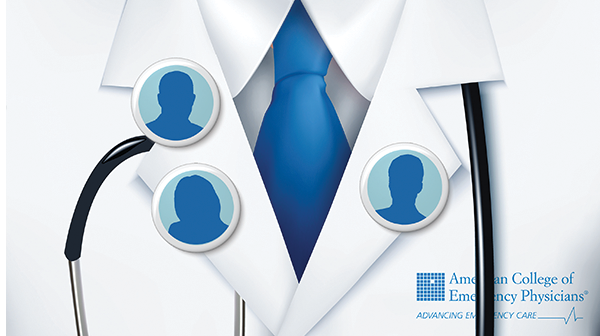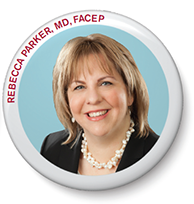
Boarding is a threat to patient safety, not only to the patients who are being held in the ED but also to patients who seek initial evaluation, because needed treatment space is otherwise occupied. Admitted patients who are held in the ED have worse outcomes, have longer lengths of stay in the hospital, and divert resources that should be used to care for others in the ED.
Explore This Issue
ACEP Now: Vol 34 – No 08 – August 2015We need to solve ED boarding through advocacy and by partnering with insurers and others in the health care industry to identify the harm and costs associated with delays and to link hospital and behavioral health payments to the reduction and elimination of boarding.
ACEP can play a leading role in elevating the stature of our specialty at the hospital level by advocating for our patients and being given the resources to provide the highest quality care. By achieving our patient safety goals, emergency medicine will be recognized as a major factor impacting outcomes throughout the health care system and promoting the health of the community.
Rebecca Parker, MD, FACEP (Illinois)
 Current Professional Positions: attending physician, Vista Health System, Waukegan, Illinois; senior vice president, Envision Healthcare; president, Team Parker LLC, consulting group for coding, billing, and compliance; clinical assistant professor, Texas Tech University El Paso Department of Emergency Medicine
Current Professional Positions: attending physician, Vista Health System, Waukegan, Illinois; senior vice president, Envision Healthcare; president, Team Parker LLC, consulting group for coding, billing, and compliance; clinical assistant professor, Texas Tech University El Paso Department of Emergency Medicine
Internships and Residency: emergency medicine residency, Texas Tech University Health Sciences Center El Paso
Medical Degree: MD, Northwestern University Medical School (1995)
Candidate Question Response
![]() Our top issue is to implement the Affordable Care Act (ACA). Our specialty must cement its role as the nexus of emergent delivery care and then expand beyond the emergency department to lead the new acute care continuum. ACEP has an unprecedented opportunity to provide strategy for this collaborative effort. The security of our beloved specialty both clinically and financially will give us the opportunity to soar.
Our top issue is to implement the Affordable Care Act (ACA). Our specialty must cement its role as the nexus of emergent delivery care and then expand beyond the emergency department to lead the new acute care continuum. ACEP has an unprecedented opportunity to provide strategy for this collaborative effort. The security of our beloved specialty both clinically and financially will give us the opportunity to soar.
Our clinical world is rapidly changing. We take care of the sickest patients every single day, and we save lives. We know what to do with both critically ill and obviously well patients. The problem lies with the “in-betweeners”: those patients not ill enough to stay but not well enough to discharge or those without access to a clinic or specialties such as psychiatry.
In response to this issue, our colleagues are doing what they do best: piloting creative solutions. With urgent care centers, freestanding EDs, telemedicine, paramedicine, care coordination, and observation units, our emergency physician colleagues are delivering cutting-edge care to our patients.




No Responses to “2015 ACEP Elections Preview: Meet the President-Elect Candidates”